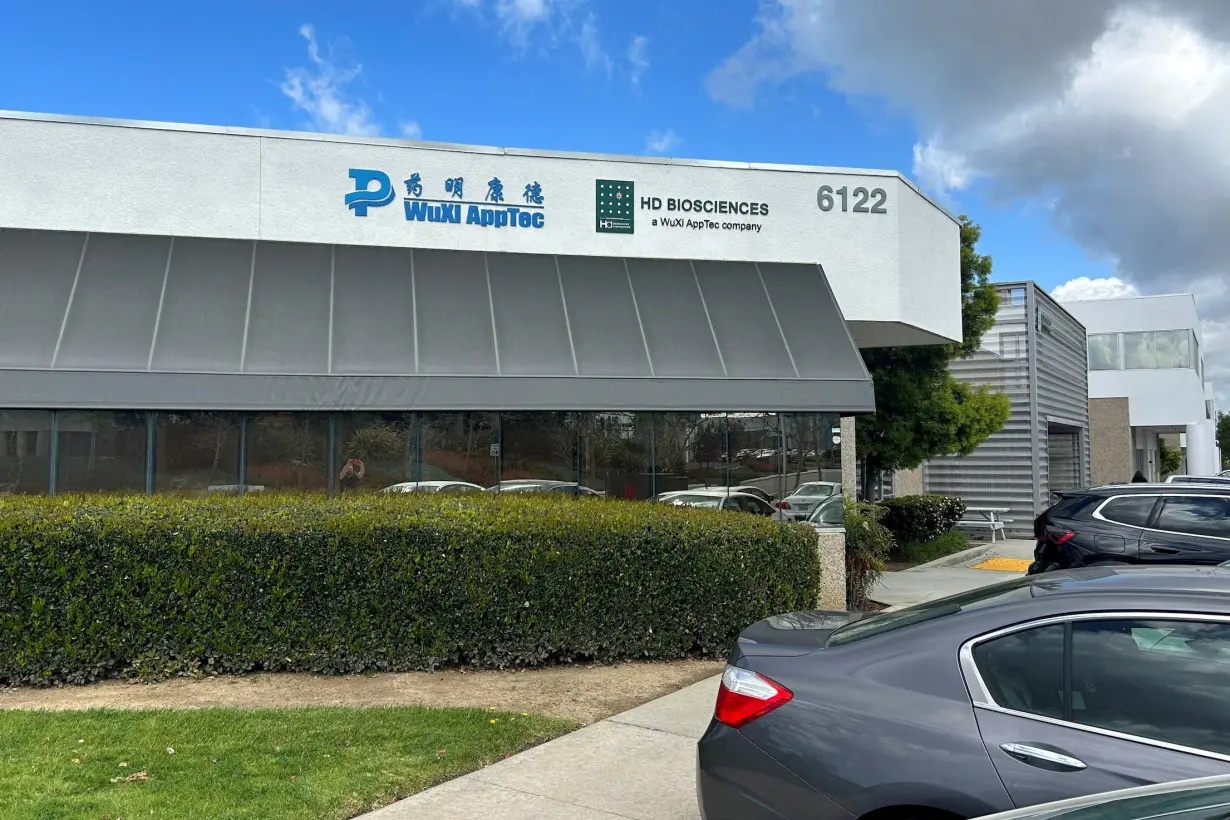By Karen Freifeld
(Reuters) -U.S. legislation that would restrict business with China's BGI, WuXi AppTec and certain other biotech companies on national security grounds was approved by a U.S. House of Representatives committee on Wednesday.
The House Committee on Oversight and Accountability voted overwhelmingly to approve the Biosecure Act, which now must get through the full House and Senate before President Joe Biden could sign it into law.
The bill would push U.S. pharmaceutical and healthcare companies to lessen their reliance on Chinese research and manufacturing.
"This bill is a necessary step towards protecting America’s sensitive healthcare data from the CCP before these companies become more embedded in the U.S. economy," Republican Representative James Comer, the committee chair, said before the vote. "CCP" is the acronym for the Chinese Communist Party.
The U.S. Senate Homeland Security and Governmental Affairs committee approved similar legislation in March.
The House bill gives U.S. companies until 2032 to end work with the Chinese firms, news that lifted shares of potentially affected Chinese companies in trading in Hong Kong earlier this week.
The latest draft of the bill adds WuXi Biologics to a list of companies of concern that includes WuXi AppTec, as well as BGI, MGI and Complete Genomics.
Supporters say the legislation is needed to keep Americans' health and genetic information from foreign adversaries, who could weaponize the data. They also say it is dangerous for China to dominate the biotechnology supply chain.
The targeted companies say the proposed legislation is based on false and misleading allegations and would limit competition. They say they do not pose a threat to U.S. national security and that they should not be included in the bill.
The Biosecure Act would bar federal agencies from contracting with biotech companies deemed of concern. It also would prohibit contracts with companies that use those companies' equipment or services.
"U.S. taxpayer dollars should not be funding (Chinese) biotech companies that are actively working with the CCP and the People's Liberation Army to potentially collect Americans' genomic data and intellectual property and use that data to further their authoritarian objectives," said Representative Raja Krishnamoorthi, a Democrat who introduced the revised House bill last week with Republican colleague Brad Wenstrup.
In 2023, Wuxi Biologics earned about 47% of its 17 billion yuan ($2.35 billion) in annual sales from North America and about 18% from China, according to its annual report.
Two-thirds of WuXi AppTec's revenue came from the U.S. market in the first nine months of 2023, according to an investor.
Complete Genomics - another "company of concern" - is a U.S.-founded company, headquartered in San Jose, California. It is a subsidiary of China's MGI, a publicly traded global company.
BGI, a leading provider of genetic sequencing services around the world, has said the legislation will drive the company out of the U.S.
($1 = 7.2190 Chinese yuan renminbi)
(Reporting by Karen Freifeld; additional reporting by Makini Brice in Washington; Editing by Michael Erman, Chris Sanders and Jonathan Oatis)

 Can AI help humans understand animals and reconnect with nature? A nonprofit research lab thinks so
Can AI help humans understand animals and reconnect with nature? A nonprofit research lab thinks so
 US must not become complacent to a growing terrorism threat, a Counterterrorism Center official says
US must not become complacent to a growing terrorism threat, a Counterterrorism Center official says
 Sedentary work linked to 37% higher risk of insomnia-like symptoms, new study finds
Sedentary work linked to 37% higher risk of insomnia-like symptoms, new study finds
 Israel supplied Iran with centrifuge platforms containing explosives, top official acknowledges
Israel supplied Iran with centrifuge platforms containing explosives, top official acknowledges
 Look of the Week: Timothée Chalamet adopts London’s most stylish accessory
Look of the Week: Timothée Chalamet adopts London’s most stylish accessory
 Republican bill seeks to curtail US FTC's merger-busting powers
Republican bill seeks to curtail US FTC's merger-busting powers
 Texas online porn age-verification law goes to US Supreme Court
Texas online porn age-verification law goes to US Supreme Court
 Overtourism was the buzzword of 2024. This summer looks to be just as crowded and chaotic
Overtourism was the buzzword of 2024. This summer looks to be just as crowded and chaotic








